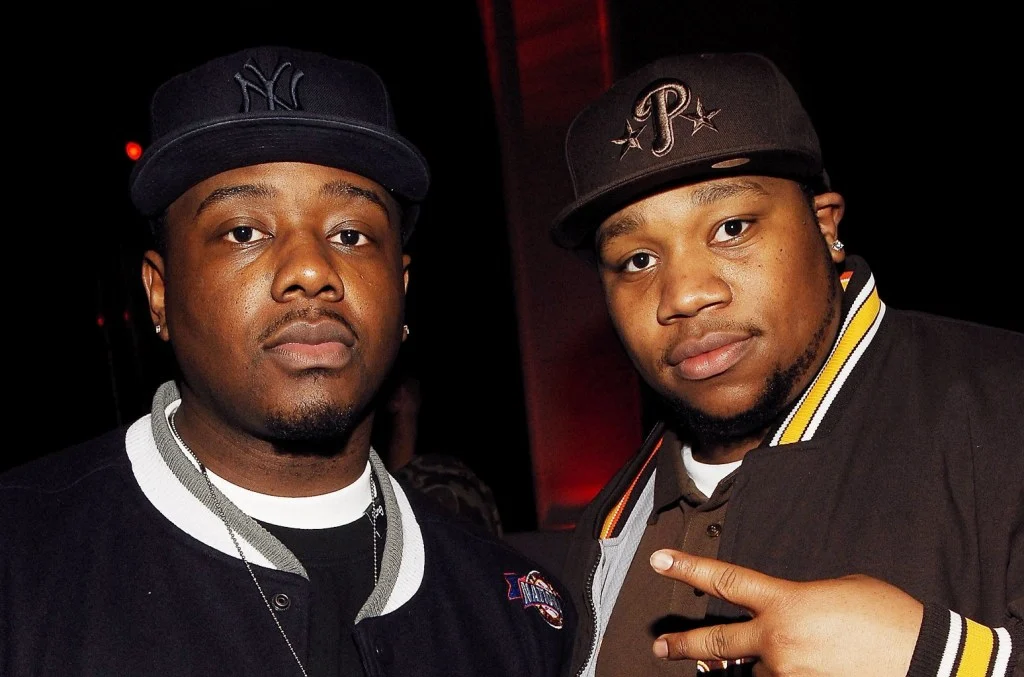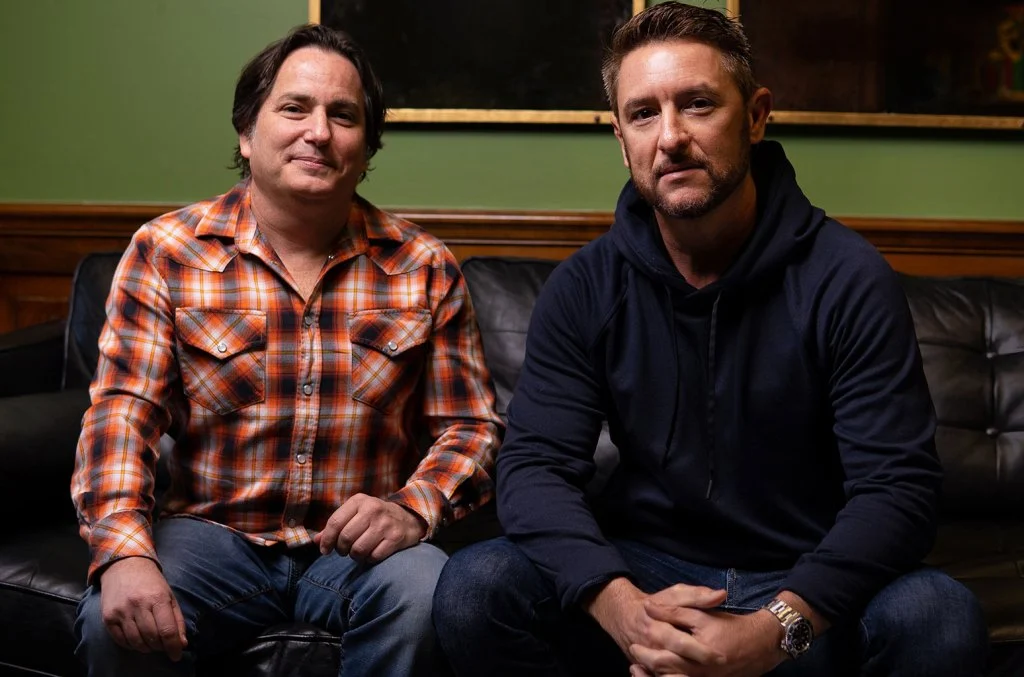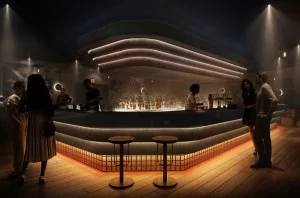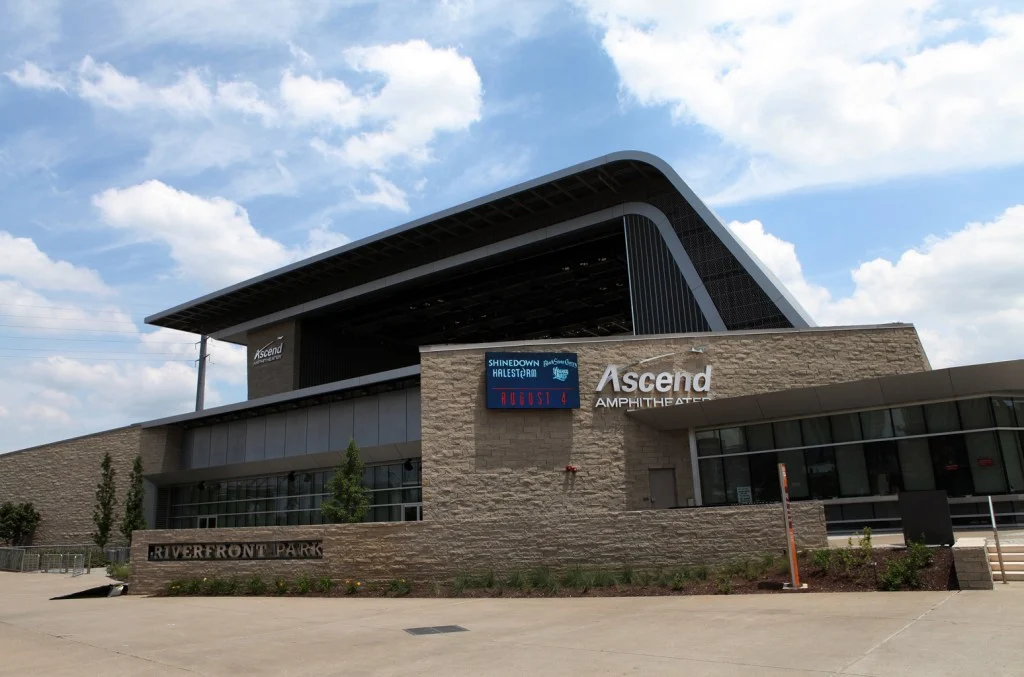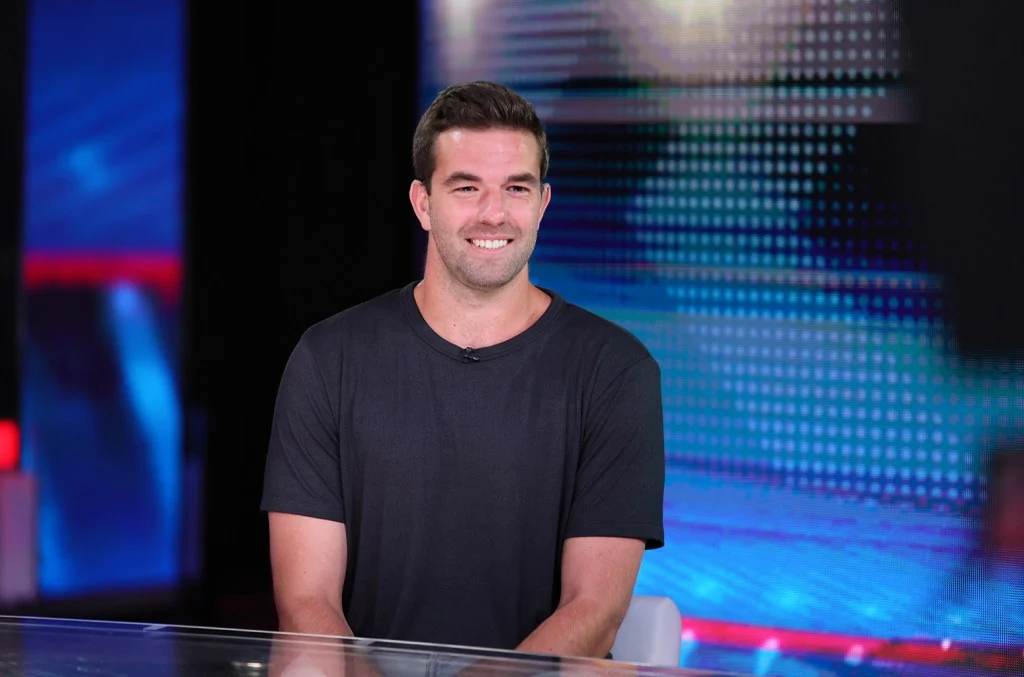Touring
Page: 23
Bella, where have you been, loca? Twilight‘s going on tour!
GEA Live and Lionsgate announced Twilight concert tour on Wednesday (April 9), according to Variety. The 60-date run will span across U.S. and kick off with a preview performance in Spokane, Wash.,on Sept. 12. It then opens in Seattle on Sept. 13, a.k.a. National Twilighters Day.
The live-to-film experience will show the original 2008 movie accompanied by an onstage 12-piece ensemble of rock and orchestral musicians, who will synchronize their performance to scenes in the visual. Tickets go on sale this Friday (April 11).
Explore
Explore
See latest videos, charts and news
See latest videos, charts and news
The five Twilight films (Twilight, New Moon, Eclipse and Breaking Dawn – Parts 1 & 2) are based on the popular Stephanie Meyer book series of the same name. The first novel, released in 2005, is celebrating its 20th anniversary this year. To celebrate, publishers Little, Brown Books for Young Readers is releasing a new edition of the series for a new generation of fans. The Twilight Saga Deluxe Hardcover Collection features five hardcover books, including the four main entries in the series as well as Midnight Sun, the companion novel published in 2020.
Trending on Billboard
See the full list of dates of the Twilight concert tour below.
September 12 – Spokane, WA – First Interstate Center for the ArtsSeptember 13 – Seattle, WA – Paramount TheatreSeptember 14 – Bellingham, WA – Mount Baker TheatreSeptember 15 – Portland, OR – Arlene Schnitzer Concert HallSeptember 17 – Idaho Falls, ID – Frontier Center for the Performing ArtsSeptember 18 – Boise, ID – Velma V. Morrison Center for the Performing ArtsSeptember 19 – Eugene, OR – Hult Center for the Performing ArtsSeptember 20 – Sacramento, CA – SAFE Credit Union Performing Arts CenterSeptember 21 – Modesto, CA – Gallo Center for the ArtsSeptember 23 – San Francisco, CA – Golden Gate TheatreSeptember 24 – Costa Mesa, CA – Segerstrom Center for the ArtsSeptember 25 – San Diego, CA – San Diego Civic TheatreSeptember 26 – San Jose, CA – San Jose Center for the Performing ArtsSeptember 27 – Reno, NV – Pioneer CenterSeptember 28 – Salt Lake City, UT – Eccles TheaterSeptember 30 – Los Angeles, CA – The WilternOctober 1 – Riverside, CA – Fox Performing Arts CenterOctober 2 – Mesa, AZ – Mesa Arts CenterOctober 3 – Tucson, AZ – Fox TucsonOctober 4 – Albuquerque, NM – Popejoy HallOctober 5 – Denver, CO – Buell TheatreOctober 7 – Omaha, NE – Orpheum TheatreOctober 8 – Oklahoma City, OK – Thelma Gaylord Performing Arts TheatreOctober 9 – Sugar Land, TX – Smart Financial CentreOctober 10 – Dallas, TX – Majestic TheatreOctober 11 – Austin, TX – Bass Concert HallOctober 12 – San Antonio, TX – Majestic TheatreOctober 14 – New Orleans, LA – The Mahalia Jackson TheaterOctober 15 – Jacksonville, FL – Moran Theater October 16 – Orlando, FL – Dr. Phillips Center for the Performing ArtsOctober 17 – Sarasota, FL – Van Wezel Performing Arts HallOctober 18 – W. Palm Beach, FL – Kravis CenterOctober 19 – Miami, FL – Knight Concert Hall at the Adrienne Arsht CenterOctober 21 – Wilmington, NC – Wilson CenterOctober 22 – Durham, NC – Durham Performing Arts CenterOctober 23 – Greensboro, NC – Tanger CenterOctober 24–25 – Washington, DC – National TheatreOctober 26 – Wallingford, CT – Oakdale TheatreOctober 28 – Cincinnati, OH – Proctor and Gamble HallOctober 29 – Chesterfield, MO – The FactoryOctober 30 – Des Moines, IA – Des Moines Civic CenterOctober 31 – Ft. Wayne, IN – Embassy TheatreNovember 1 – Utica, NY – Stanley TheatreNovember 2 – Boston, MA – Emerson Colonial TheaterNovember 4 – Charlotte, NC – Ovens AuditoriumNovember 5 – Indianapolis, IN – Murat TheatreNovember 6 – Detroit, MI – Fisher TheatreNovember 7–8 – Chicago, IL – Cadillac Palace TheatreNovember 9 – Minneapolis, MN – Orpheum TheatreNovember 11 – Rochester, NY – Kodak CenterNovember 12 – Red Bank, NJ – Count Basie TheatreNovember 13 – Portland, ME – Merrill AuditoriumNovember 14 – Buffalo, NY – UB Center for the ArtsNovember 15 – Providence, RI – The VETSNovember 16 – Brooklyn, NY – Kings TheatreNovember 18 – Reading, PA – Santander Performing Arts CenterNovember 19 – Baltimore, MD – Lyric Opera HouseNovember 20 – Dayton, OH – Victoria TheatreNovember 21 – Richmond, VA – Dominion Energy CenterNovember 22 – Philadelphia, PA – Met Opera HouseNovember 23 – Newark, NJ – New Jersey Performing Arts CenterNovember 25 – Atlanta, GA – Cobb Energy Performing Arts CentreNovember 26 – Clearwater, FL – Ruth Eckerd HallNovember 28 – Columbus, OH – Palace TheatreNovember 29 – Cleveland, OH – KeyBank State TheatreNovember 30 – Milwaukee, WI – Riverside Theatre
For the first time in 11 years, Australian Little Monsters will get to see pop icon Lady Gaga perform live Down Under. On Tuesday (April 8), Gaga announced three new dates for her 2025 Mayhem Ball tour, each taking place in stadiums across Australia — her first stadium shows in the country. Kicking off Dec. […]
Little Brother have announced that they’ll be hitting the road one last time starting this spring. On Monday, the North Carolina duo comprised of Phonte and Big Pooh announced they’d be hanging up their mics for good, but not without seeing their fans one last time. The pair will embark on a 12-date “Curtain Call” […]
Danny Hayes is leaving Danny Wimmer Presents, where he has served as chief executive and partner for more than a decade. “When I first started my career as an entertainment lawyer, I never imagined I’d become a festival promoter,” Hayes wrote in email to friends on April 5. “But then I met Danny Wimmer, and […]
Ben Lovett‘s venue management firm tvg is opening its first venue in Los Angeles, unveiling plans today for the Pacific Electric, a 750-capacity open room in the city’s Chinatown neighborhood.
Located next to popular restaurant Majordomo, the venue is set in an old warehouse that was previously owned by Wasserman Music executive and booking agent Tom Windish. Its name is a nod to the trolley system that once crisscrossed downtown LA and beyond.
“For the last 10 years, I’ve kind of been obsessed with venues and the role that venues have in artists stories,” Lovett tells Billboard. “Everything from the air that you’re breathing, to the floor that you’re standing on that really matters. It’s not just a happenstance — it makes the show and for a lot of people the room can be so good that it can bring out transcendental performances.”
Trending on Billboard
Lovett said he has been working on the project for several years and adds that Pacific Electric will be managed by venue veteran Stacey Levine, who has managed the Wiltern, the Hollywood Palladium and most recently managed the Theater at the Ace Hotel. Lovett said his goal with Pacific Electric is to great a neighborhood room that combines hospitality with intimate sightlights and state-of-the-art audio and dynamic lighting. The venue will have its own bar and cocktail program, along with culinary offerings from a variety of vendors and chefs.
Pacific Electric
Courtesy of Pacific Electric
Lovett tells us that his company partnered with Live Nation on the project, which “was very much intentional on my behalf, given that it’s in LA and I’ve done a bunch of great work with them over the years.”
Pacific Electric will encourage “artists to choose which promoters they want to work with,” noting the club will be operated as an agnostic, open room.
“Artists should be able to elect who they work with every step of the way, and that keeps everyone honest and doing the best work,” Lovett says.
Lovett, a multi-platinum Grammy-winning recording artist with the group Mumford and Sons, has been in the concert promotion business for a number of years through his firm Communion and operated a number of venues the tvg including Omeara and the Social in London, and the award winning Orion Amphitheater in Huntsville, Alabama.
Lovett said his hope for Pacific Electric is to focus on community engagement and cultural events while cultivating ascendent local talent and ready to grow from 500 cap venues.
“I want it to have some grit under the fingernails. I want patrons to feel our honesty and passion and sweat and hard work. It will not feel like a glossy box by any stretch. It will be matte,” Lovett jokes. “I hope that the moment that the first lyric lands, fans will understand what we are working toward and embrace this spiritual experience in kind of an industrial way.”
Pacific Electric
Courtesy of Pacific Electric
Nashville’s Ascend Amphitheater is getting a new operator.
Metro Nashville has notified Ryman Hospitality Properties (RHP) that it intends to have RHP’s Opry Entertainment Group (OEG) operate Ascend Amphitheater for the next decade. The deal is subject to successful negotiation between the two parties. Axios first reported the news.
Colin Reed, executive chairman of RHP’s board of directors, tells Billboard he expects the negotiations to conclude within the next three months and that the 10-year contract will take effect Jan. 1, 2026. It’s a realization of a dream for RHP that began even before the 6,800-capacity outdoor venue opened in 2015. “We applied for this a decade ago when the city was deciding they were going to build [Ascend],” he says. “We and Live Nation bid 10 years ago. We loved the space then and we really love the space now.”
RHP has aready committed capital to “beautify the project,” Reed says. “Upgrade it and make it more of an experience for the consumer.”
Trending on Billboard
RHP was selected over Live Nation and AEG. “We really put our front foot forward here, so we always thought we had a shot, but beating two companies that, quite candidly, we have a high degree of regard for — AEG, that handles all of our ticketing in all of our venues, as well as Live Nation, who we have a healthy relationship with — we were very pleased,” Reed adds.
Ascend has averaged 20 to 30 concerts a year, primarily during the summer season, but Reed says he expects to substantially expand activity at the venue.
A cap on 35 shows per year was put in place when the amphitheater opened because it is in a residential area, Reed says, but “the issue for us is this is one of the great pieces of real estate in the city of Nashville and how do we activate it for the other 330 days a year because it should not be kept fallow for that period of time. We can do daytime programming. We can do Opry Under the Stars. We’ve spent quite a bit of time talking with the symphony. There are multiple ways in which we can activate this space.” He is also eager to bring holiday offerings to the Ascend from Thanksgiving to the end of December.
Ascend will be an open room, meaning other promoters, including AEG and Live Nation, can promote shows there. “We want to maintain a good relationship with those businesses,” he says. “We’ll talk to anyone that wants to play this great city.”
Ryman Hospitality’s OEG also runs Nashville venues the Ryman Auditorium and the Grand Ole Opry House, in addition to having partnerships with Luke Combs‘ Category 10 venue and Blake Shelton‘s Ole Red.
Live Nation did not immediately respond to a request for comment.
In the 1980s, it was considered a win when a small venue like the 9:30 Club only lost $100,000 in a year. Back in ‘86, when promoters Seth Hurwitz and Rich Heinecke (Hurwitz’s former high school substitute teacher) purchased the six-year-old, rat-infested 200-capacity space from married couple Jon Bowers and Dodi Disanto, they knew it was more of an investment than a money-maker.
“The 9:30 was a loss leader,” Hurwitz tells Billboard, “but I needed to do the small acts so I could get them on the big stage like R.E.M., Smashing Pumpkins.”
Those were the rules of regional concert promotion before the giant national corporations like Live Nation and AEG entered the picture. Every region would have a closed network of promoters — “famously designed and perpetrated by Frank Barsalona and Premier Talent,” Hurwitz explains — and to make your way in, you had to start from the bottom.
Trending on Billboard
Hurwitz can’t say for certain why he always wanted to put on concerts. He speculates that maybe it stems from his love of presenting music to others. In elementary school, he’d skip outside time during recess to play records he brought in, and, at home, he played disc jockey, setting up a little electronic kit where he could broadcast radio just far enough for his household to hear in other rooms.
More likely, he believes he got into the business to feel important and integral to the live music experience. “[I wanted to put on shows] probably so I could go anywhere in the show. In fact, I hate going to other people’s shows because I get told I can’t go here or there and I hate that,” he says.
9:30 Club
John Shore
In his teens, Hurwitz began booking shows at a local movie theater with a stage; he later moved up to larger shows with Heinecke’s financial backing.
“When it came time to put on a show, [Heinecke] had the money and I had been to New York to visit agents with the promoter Sam L’Hommedieu Jr.,” says Hurwitz of tagging along from D.C. with the co-founder (along with Jack Boyle) of the 162-seat club Cellar Door. “It was just one trip, but I learned a lot. Probably the most important thing I learned was how to pass [on booking an act], which is a lost art.”
In his early twenties, Hurwitz and Heinecke’s promotion company, I.M.P., was working in tandem with Ian Copeland, who was emulating Barsalona’s promoter network in the D.C. metro area. I.M.P. booked the smaller shows in the region at the Ontario and eventually the original 9:30 Club, where they became the exclusive bookers. By 1986, Disanto was done taking the financial hit of running a small club and sold it to I.M.P.
“She was like, ‘Here, you buy it. I’m sick of this.’ And we did,” says Hurwitz of his first venture into venue ownership. By booking shows at the 9:30 Club, Hurwitz and Heinecke had been able to grow with acts as they progressed to money-making shows at arenas, and though he says he didn’t have an interest in buying the club, Hurwitz knew they couldn’t allow the entry point for their talent pipeline to dry up.
Until it did.
In 1993, Dante Ferrando and a group of investors that included then-Nirvana drummer Dave Grohl opened the neighboring venue Black Cat, which could be scaled from 500 to 800 capacity.
“Now there was another [club] with a bigger stage, bigger dressing room, bigger capacity, and all our so-called friends walked,” says Hurwitz. “It was a hard lesson to learn.”
In order to compete, I.M.P. purchased another old venue in a neglected part of town and moved the 9:30 Club to its current location at 815 V Street in January 1996.
“We wanted to create the greatest club ever — never an argument again. No question where people would play,” says Hurwitz. “We invented the mega club. The challenge was at the 9:30 Club, we got all these acts, we got the history (which was honored at that time, not so much now) because we had the best small plays. We still needed the best small plays. We needed to have the best big club and the best small club.”
For the new V Street 9:30 Club, they created a moving stage that could shrink the room from 1,200 to 300 without anyone noticing. And they wanted to move away from the old rock’n’roll ethos of a smelly, dirty black box like the former space. The new 9:30 Club serves good food, has great sightlines, is never too hot (the venue invested in extra AC units to be sure) and the staff is always kind to fans.
9:30 Club
Richie Downs
Another point of pride for Hurwitz is the lack of sponsorship around the 9:30 Club. There is no signage with corporate sponsors. There is no VIP area, balcony seats don’t sell for more money and, most importantly, they do their best to keep ticket prices low.
“It’s an egalitarian sort of situation. It is not this velvet rope kind of thing. You go with your people, you’re treated nicely, you’re not uncomfortable and you have fun,” he says.
The current 9:30 Club opened in January 1996 with two sold-out shows by The Smashing Pumpkins and it’s continued to build its reputation from there. In its nearly 40-year history, the venue has hosted such legendary acts as Tony Bennett, Bob Dylan, Adele, Iggy Pop, Drake, Justin Timberlake, James Brown, Lou Reed, George Clinton, Loretta Lynn, Willie Nelson, Radiohead and countless more.
I.M.P. has grown with its artists and now also owns and/or operates the 1,200-capacity Lincoln Theater, the 2,500- to 6,000-capacity Anthem (both in D.C.) and the 19,000-capacity Merriweather Post Pavilion in Columbia, Md. In 2023, I.M.P. spent $10 million to build another small club, the 450-capacity Atlantis, which is a replica of the original 9:30 Club minus the smell. While Hurwitz says small clubs are still “a losing proposition,” The Atlantis helps feed bands to the 9:30 Club and I.M.P.’s larger clubs from day one via the company’s promotion and marketing. “It’s not just a placeholder,” he explains. “We want to make you bigger so that we will make more money next time.”
That strategy has panned out for I.M.P. through the lost art of the pass. “We do pass on things that we don’t think are cool enough for the 9:30 Club. A lot of the acts that don’t play us, we actually passed on. So, I’m sorry, but people count on us to curate,” says Hurwitz. “We don’t have enough dates to do the acts we want to do. Why would I do something that I think sucks or has no potential?”
Jennifer Lopez is hitting the road this year, making her first official stop in Spain. Jenny from the Block announced dates to her Up All Night Live in 2025 stint on Monday (April 7), teasing an electrifying show during which she’ll be performing some of the biggest hits of her career. “To all my international […]
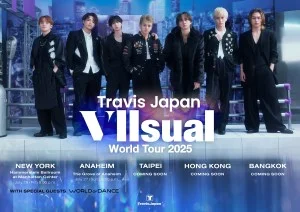
Travis Japan continues to expand their reach in its home country and around the world in 2025, taking on challenges on a global scale. The popular boy band is currently on the road promoting its second album VIIsual — which topped the Billboard Japan Hot Albums chart after dropping in December — traveling to eight cities around the country for the domestic Travis Japan Concert Tour 2025 VIIsual tour that kicked off in January. The group is also set to tour Asia and the U.S. for its second global trek this summer.
Billboard Japan caught up with the six members (Noel is currently taking a break for health reasons), who continue to improve themselves by learning from each other, and asked about the appeal of their new songs “Say I do” and “Tokyo Crazy Night.” The group also looked back on their world tour from last year that took them to six cities around the globe and shared some takeaways from the experience.
Trending on Billboard
Could you share your impressions from your first world tour, Travis Japan World Tour 2024 Road to A, which took place last fall?
Shizu: We toured six cities around the world to promote our first album Road to A, and were able to interact further with our fans outside of Japan. I felt like I’d been given a very valuable experience. The venues weren’t exactly big, but I was glad we were able to show the appeal of Travis Japan that can only be expressed on those kinds of stages. We had a lot of fun on tour, learning the local languages along the way.
Shime: It was our first time doing it, so of course I was looking forward to it but also a little worried about how it would go. But when we actually got on stage, the audience got really excited and cheered so much. Our fans taught us some of the local languages in-between songs, and we learned a lot on that world tour.
Chaka: We’d been waiting to do a global tour since our debut in October 2022, so when it finally became a reality, we boarded the plane with a mixture of anticipation and anxiety. It was a completely new environment for us, but we went on stage with the confidence that our fans had given us, and the entertainment that we’d built up. Above all, I thought it was wonderful that we were able to connect with people through entertainment. We could have done better in certain aspects, but I think it was a very fruitful tour.
Genta: After experiencing the world tour that the seven of us had been aiming to do, there were definitely some fun parts, but also a lot of difficult parts. But as the other members said, we gained a lot of experience and everything we went through made us stronger. I’m really grateful that we were able to show our performances on stage with the support of our fans and staff who have stood by us. I was also happy to have experienced the culture and food of each country we visited. I strongly felt that I want us to keep expanding our reach and gain more experience.
Machu: It was our dream and a huge goal that we’d been working towards, so I was really happy that it came true. Up until then, we’d been getting responses through social media from our fans overseas who couldn’t come to our domestic tours, but when we were able to communicate with them directly in their home countries, we realized once again just how many people were supporting us. It was a really wonderful opportunity.
Umi: It really hit home how big the world is after we did our global tour, and I could feel firsthand just how many fans were waiting for us. I had a really great time, but simultaneously felt that I need to study languages more.
You’re stepping into new genres with “Say I do” and “Tokyo Crazy Night.”
Umi: It does feel like “Say I do” is a kind of song we’ve never done before. We don’t have many songs where we open up like that to the love interest, so I was happy we could sing lyrics like that, and that karaoke-friendly sound is really good, too.
Machu: The lyrics are straightforward, aren’t they? It’s a love song that really gets the message across.
Shizu: I think it’s delightful because it’s pop and uses sounds that make people feel happy.
Shime: I also think the lyrics are really good. The part that goes, “The illumination in my heart lights up every time I see you,” I wonder if our fans think like every time they come to our shows. I think there are parts that everyone can relate to.
“Say I do” is the theme song for Honnou Switch, the drama series starring Chaka.
Chaka: When I read the lyrics, I could imagine the situation in the drama, and I feel that (the lyrics and drama) are strongly linked. There are two people who love each other, and the lyrics are full of both their feelings and the messages they convey to each other. I also think it’s cute that there’s a development in the lyrics. Expressing that kind of feel is a new side of TJ. It’s fun discovering we can express things like this too.
Genta: We put aside our “weapons” (dance) for the first time in the accompanying music video and set up a company called Doki Doki Ren’ai Sodanjo (Racing Heart Love Consultation Center). We work there as employees and solve people’s problems.
“Tokyo Crazy Night” is the theme song for the drama series Tokyo Camouflage Hour, starring Machu.
Machu: It’s retro-style city pop and so cool, and matches the drama it accompanies. It’s also a genre we’ve never tried before, so I think our fans will be able to see a new side of us.
Shime: I really like the chorus. The melody of the chorus, the rhythm of the song, and the background sounds all go really well together, and it’s a lot of fun to sing. It’s a cool song, so we have to sing it in a cool way, but it’s just so fun. I want our fans to sing it at karaoke with cool expressions on their faces.
You have a second world tour lined up this year.
Machu: During our first trek, we directly sensed how much so many people support us, and having experienced that means a lot. This time, we can plan ahead from the rehearsal stage and include things like, “Let’s make a section where we sing together with the crowd” so we can kick up this year’s global tour a notch from last year’s. I want to deliver a lot of thanks again this year too.
Genta: We hope to be able to deliver Travis Japan’s performance to more people, while making use of the experience we gained last year. The theme songs for the drama series starring members have also been released, so I want to convey the appeal of those new songs as well.
Chaka: I’m going to take the feelings and love we received from everyone on our domestic tour, the performances we want to show and deliver, plus our wonderful songs, put them all in a carry-on case and board those planes!
Machu: What the heck do you mean? Sounds like you’ll get stopped at the security checkpoints.
Shime: [Laughs] I want to spread lots of happiness. We’ll all work hard to put on shows that will make you love Travis Japan’s performances and entertainment even more.
Shizu: Every time we perform during our tours and events overseas, the number of people we want to see again increases, and it feels like our family is growing. I’m sure there will be fans from each country who will be coming to our shows for the first time, so I want to give it my all to make them feel like they’re part of our family too. We want to make this a tour that people want to come back to, and also want to create a space that makes us want to go back.
Umi: Being able to perform for local fans on our world tour is a really big deal for us. There are things you can’t understand until you feel the passion of the local fans directly, so we’ll perform with the same power as everyone waiting for us, and it’d be great if we can make them happy with our dancing and singing.
Travis Japan World Tour 2025 VIIsual
Jul 25 – Hammerstein Ballroom – New York, NY
Jul 27 – The Grove of Anaheim – Anaheim, CA
Taipei – coming soon
Hong Kong – coming soon
Bangkok – coming soon
–This interview by Atsuo Nagahori first appeared on Billboard Japan
Fyre Fest founder Billy McFarland is pushing back after Mexican government officials poured cold water on his plans to resuscitate his flailing Fyre Fest 2.
Hours after the city council of Playa del Carmen, a seaside resort town along Mexico’s Yucatan Peninsula, took to X (formerly Twitter) to announce the event was not happening, McFarland issued a statement of his own calling media reports of the news “inaccurate” and “based on misinformation.”
The disagreement began Wednesday night (April 2) when an account for the Playa del Carmen City Hall posted a statement that, when translated to English, claimed no event called Fyre Fest 2 was happening in the coastal city.
Trending on Billboard
“In response to rumors about a supposed event called ‘Fyre 2,’ we inform you that no event of that name will be held in Playa del Carmen,” the statement read. “After a thorough review, there is no record or planning of any such event in the municipality.”
That led McFarland to fire back today, taking to Instagram to claim that “Fyre has been working directly with the government of Playa del Carmen and their officials since March 5, 2025, to ensure a safe and successful event.” McFarland then shared about a dozen documents on the festival’s Instagram account detailing its work with Playa del Carmen government officials to secure the proper permits for the festival, which has long been billed as a redemption project for McFarland following his disastrous 2017 Fyre Festival in the Bahamas. For that event, ticket holders were promised a luxury destination music festival only to find, on arrival at Great Exuma island, that the event they were promised was completely unrealized.
McFarland ended up serving a four-year prison sentence for misleading investors about the project. Since his release in 2022, he has promised to stage a makeup event to clean up his image and help repay the $26 million he owes his victims in restitution.
As part of Friday’s document dump, McFarland shared an email from someone with a gobiernodesolidaridad.gob.mx email address — a URL tied to the Playa del Carmen municipal government — that he called an “official invitation letter” designed to be sent to artists’ representatives to help procure talent for the festival. (The name of the email’s sender was redacted.)
“We are actively working with Fyre Festival 2 organizers to ensure a successful event from May 30 – June 2, 2025,” the email reads. “The event organizers have secured some of the best beach clubs, villas and experiential locations.” McFarland also included copies of alleged event authorization permits from Luis Armando Herrera Quiam, secretary general of Playa del Carmen, along with an alleged film permit and environmental impact assessment.
What the back and forth means for the future of Fyre Fest 2 remains to be seen. McFarland had previously announced plans to stage the event on Isla Mujeres, a popular tourist destination in the Caribbean Sea about a 30-minute ferry ride from Cancun, located in the state of Quintana Roo. But in March, tourism officials there told several media outlets that no record of the festival existed.
Tickets for Fyre Fest 2 start at $1,400 a piece for a four-day pass (airfare and hotel not included) and go as high as $25,000 for artist passes. On the high end, fans can also purchase a $1 million package for eight people that McFarland says includes access to luxury villas, a private marina with high-end yachts and a private jet to and from Cancun.

 State Champ Radio
State Champ Radio 
